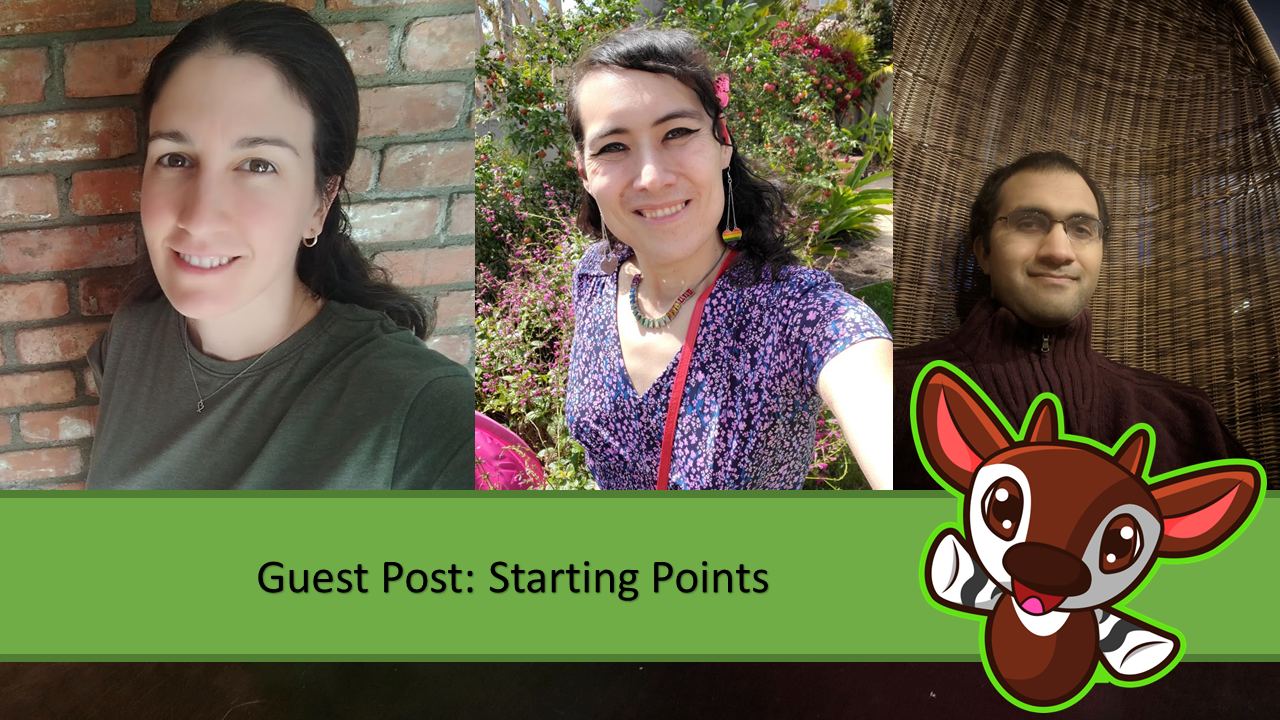
Working with and finding a great codesigner isn’t easy, but here are a ton of tips on how to do it from some amazing designers!
Is there a starting point in game design that you find yourself working best with? Theme, mechanics, experience, components, etc? Why?
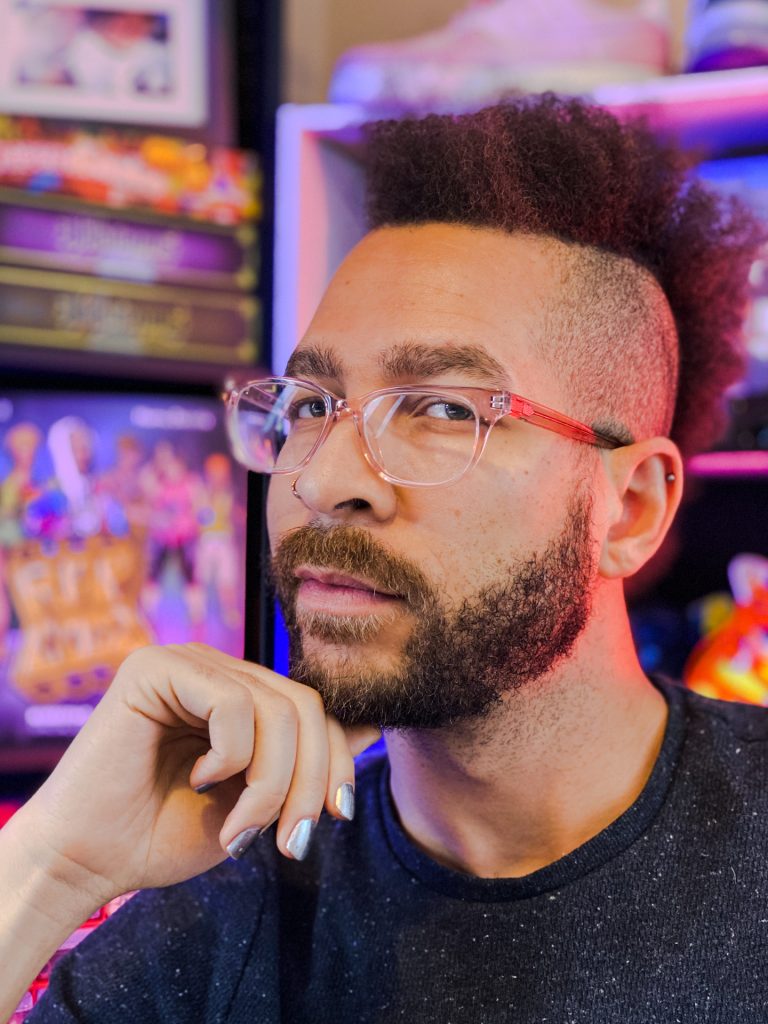
“Lately my favorite starting point for a game design has been a specific moment in gameplay—a specific moral quandary, a particularly challenging puzzle moment, an unexpected emotional connection, etc.” – Omari Akil, @akilaverse
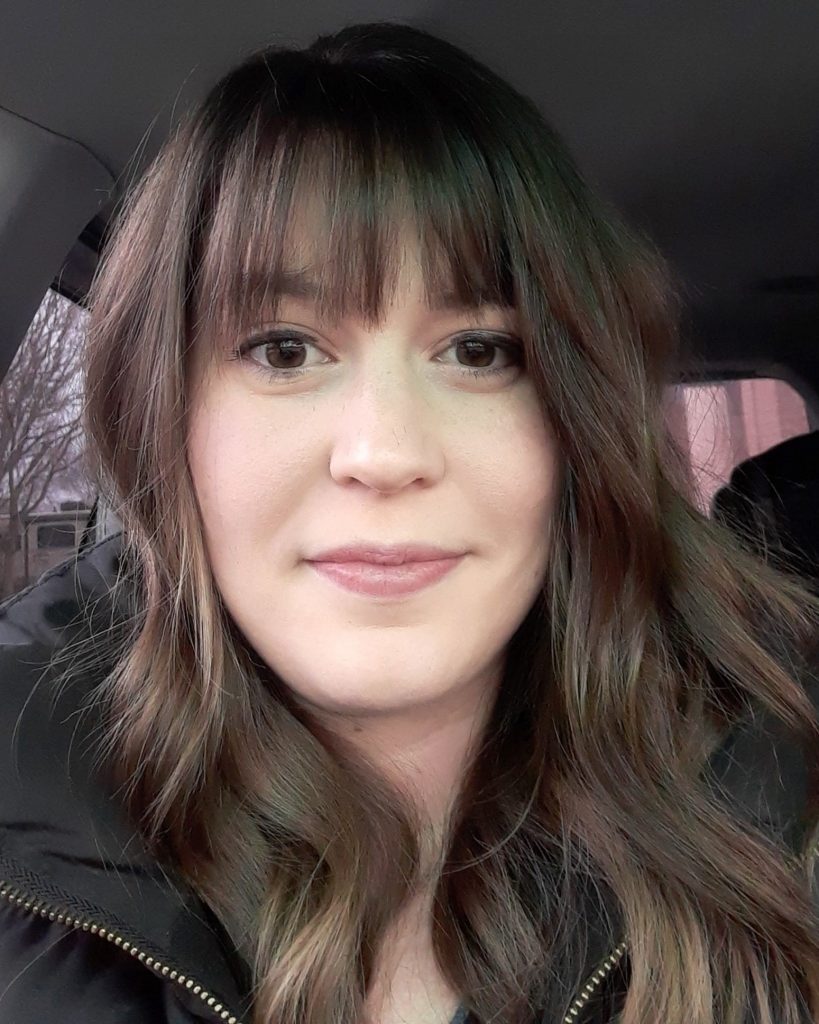
“The most success I’ve had is starting with mechanics or components. On our first design we started with theme and seemed like the easiest option, as mechanics can be built in that fit the feel of the theme. But if those mechanics don’t end up working, it’s easy to get stuck, which happened a lot.
If you start with mechanics and get those set, theme sometimes comes naturally or can be added later pretty easily (especially because publishers tend to change theme anyway). When playing with components (being a tactile person) I tend to get some ideas pretty fast. For instance, taking a deck of cards and playing around with them gets my brain going. For the contests where you are given components and need to come up with the mechanics and rules for game I have had the MOST success thus far.” – Corinne Yeager, @CoffeeLghtWght
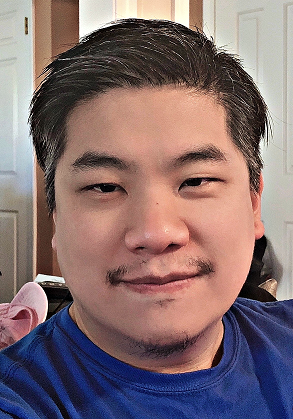
“Theme, for sure. I love to dive in with mechanics and really roll around in the muck, but I always start with theme. It’s easier for me to envision the final product that way.” – Nicholas Yu, @yutingxiang
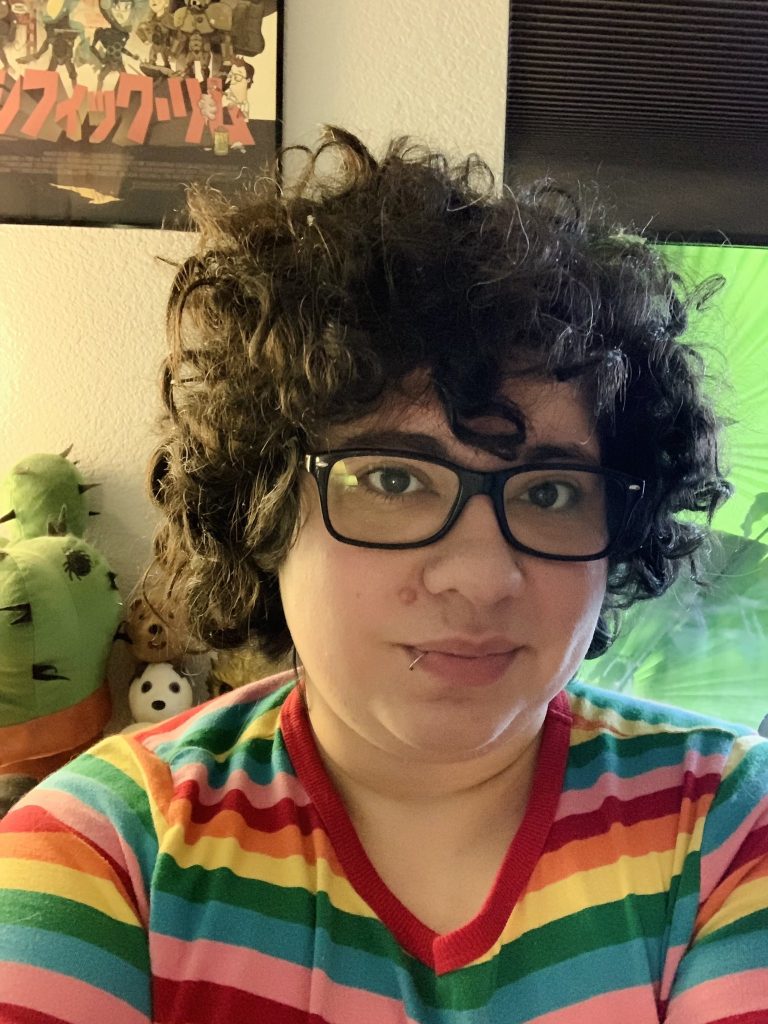
“I find that thinking about the theme or subject works best for me. It feels like a game within itself to figure out how to make a game out of a certain theme.” – Estefania Rodriguez, @estefaniar88

“I’m a mechanics-first designer, but only because I almost always default to a Medieval/Fantasy theme, anyway. Most of my design inspiration mostly just comes from me wanting to play a certain kind of game. Having a desire to play a certain kind of game, along with a base theme already in mind, makes starting new project much easier.” – David J. Bruglia, @DavidBruglia

“Mechanics are my favorite starting points, as being able to envision what a player does during a full turn / round, helps give me a direction. Do they feel like they’re starved for actions, or is it enjoying what’s currently but wish they could explore more?” – Peter Yang, @ZettoVyker
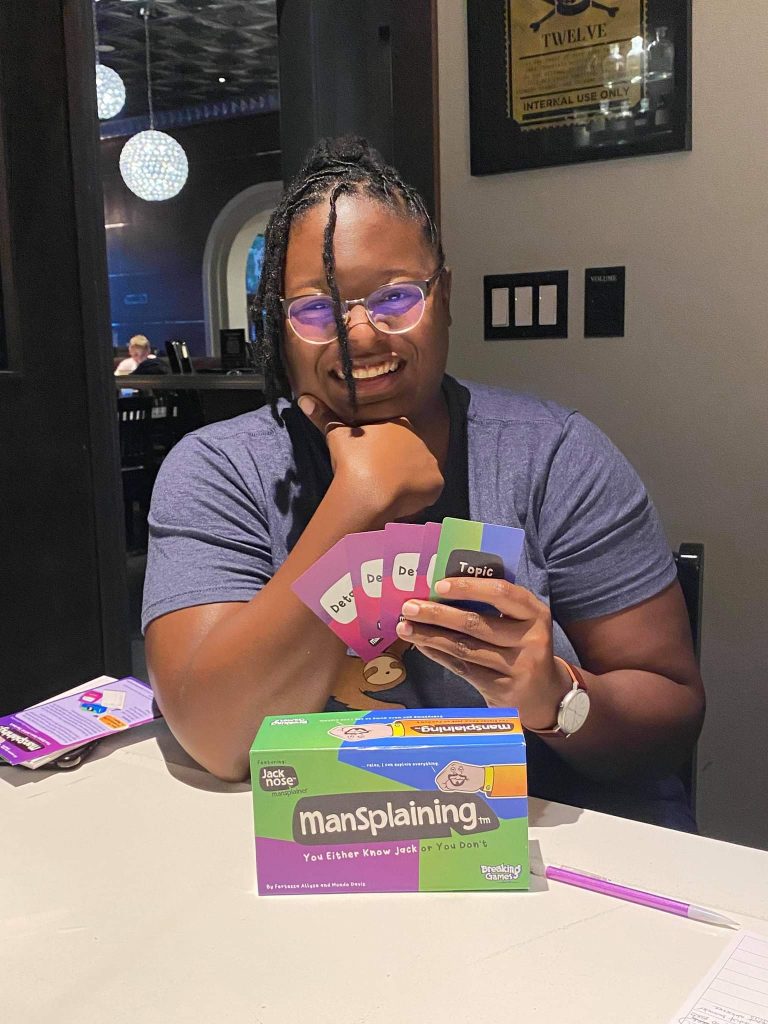
“Theme is usually my favorite starting point from design. It helps me get in the mindset of the person who is looking at this game and considering buying it. What kind of gameplay would I expect from the theme? What makes the game endearing to me? If it’s a super popular theme, then what makes this stand out among similar themes to me? These kind of questions help me take the first steps in creating mechanics or components for the game.” – Fertessa Allyse, @fertessa
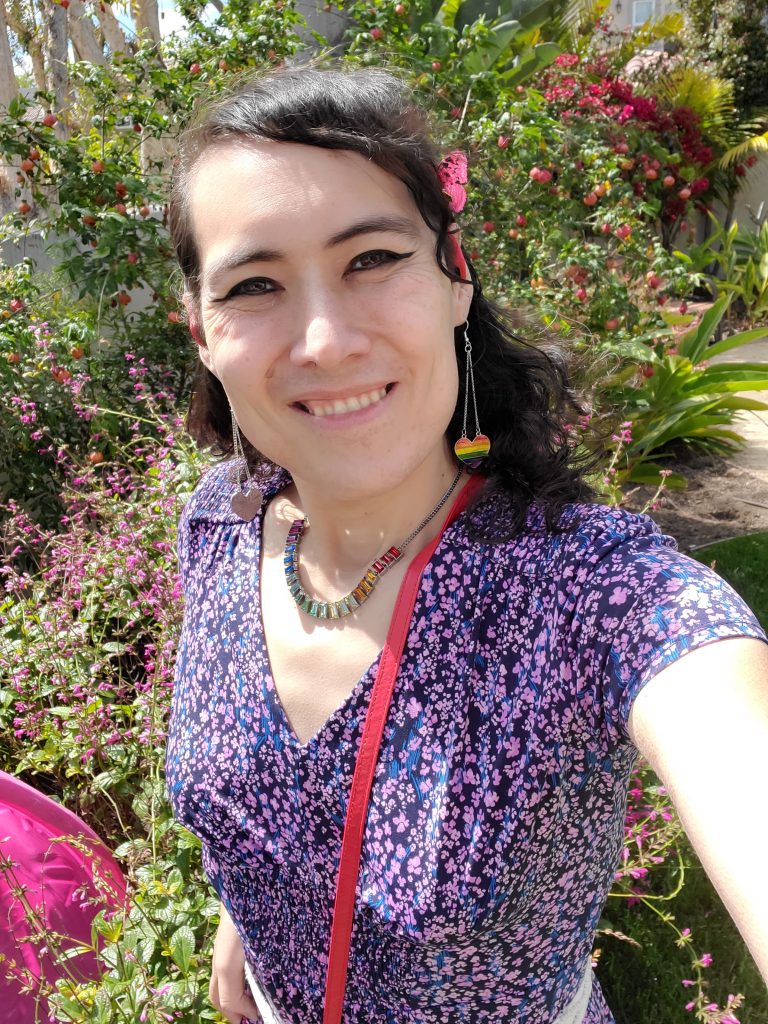
“I find I have the best luck starting with an interaction, some social player interaction that I want to enable or center, and how it’s reflected in our modern lives.
Non violent modern conflict surrounds us, yet we don’t see too many games on those subjects, but the plethora of lived experiences, sometimes personal, makes creating and playing those games an adventure for me. The mechanics usually just form themselves around the concept.” – Xoe Allred, @XoeAllred

“I find that I work best with a theme. It informs me of the type of experience I might be trying to create, which then prompts which mechanics or components can help create that experience. I love thematic games, so it’s hard for me to incorporate a theme mid-design, because things often feel a less intentional and symbiotic.” – Jadyne (Jay) Bell, @thejaybell
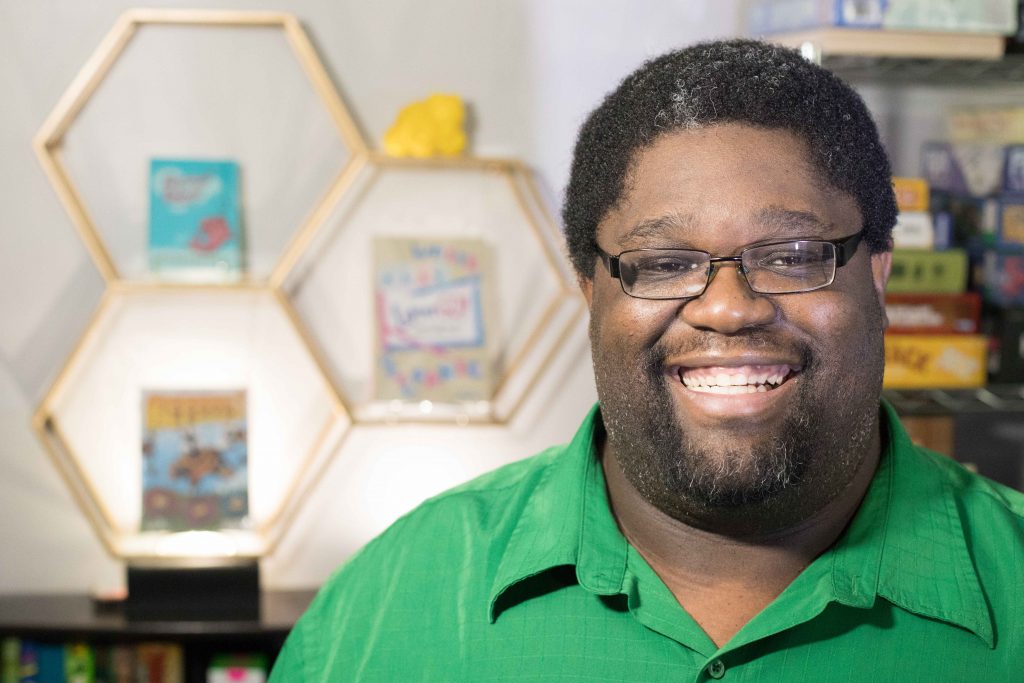
“I tend to work with experience first – really a moment first. What does the ideal game turn look like? What do I want the player to feel in that moment? How do I get them there on their own volition? I also have a weak spot for components. I have so many bits in a box waiting for their moment to shine.” – Marcus Ross, @waterbeargames

“I usually start with experience because above theme, mechanics, or components, games are interactive experiences. But, sometimes I’ll be inspired by a certain theme/mechanic/component that will shape the experience!” – Tony Tran, @tonymakesgames
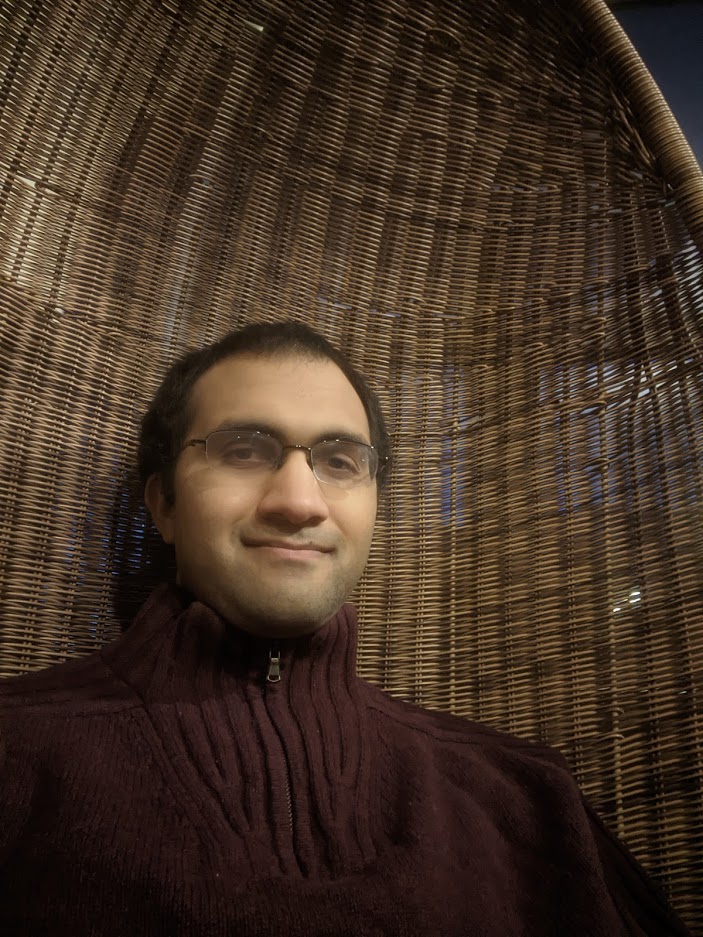
“My starting point is often (though not always) to reimplement an interesting mechanic or dynamic in a new context. Crashlanders, for example, took the rule induction elements of Cryptid or Zendo and applied them to tile placement so that players are trying to figure out the requirements governing tile adjacency.
Another thing I do is to look for inversions, turning some convention of a particular genre on its head. For instance, Goblin King is a reverse deck builder, where you receive cards (goblins) at random and have to prune your deck by letting the undesirable ones get killed off in battle.” – Ananda Guneratne, @AnandaGuneratne
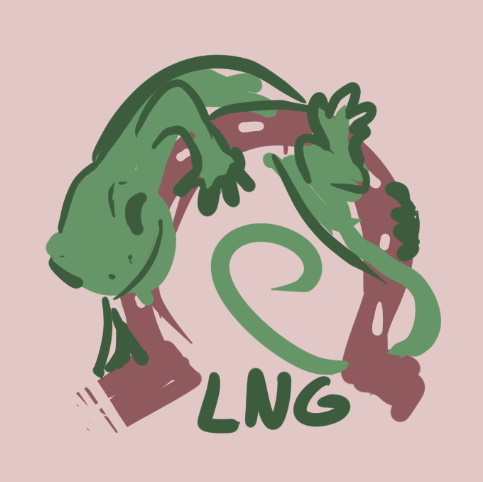
“It’s a toss-up between theme and mechanics for me. Sometimes the theme comes through crystal clear, other times the mechanics practically beg for a specific theme.” – Laura Govednik, @luckynewtgames

“The story behind the game. For example, Body Be Gone™ began with a lunchtime conversation about the challenges a serial killer faces in successfully disposing of bodies. What if there was a professional cleaning service and you were the cleaner. The story becomes the foundation and kernel for everything else.
I’m driven to deliver that story as a game experience. The story becomes the north star for game development.” – Nicole Fende

“I’ve discovered I like to start with a question. “What would a game about flamingos play like?” “How would you make a set collection/tile placement/bag construction game?” “Can you make a game with only three unique components?” I love problem solving and really enjoy the process when starting this way.” – Amelie Le-Roche, @zeruagames

“I really want to be a “purpose-driven” designer, but honestly the last… 6 or 7 games I’ve made have all been for jams/contests, each of which had a format to follow (single-page, two pages, business card, etc.) so I guess you could call that components!
“
But if I just sit and design, it’s almost always theme-first. I just love exploring a world, a story, or a feeling and making the most of it.” – Beth Jackson, @bethmakesgames
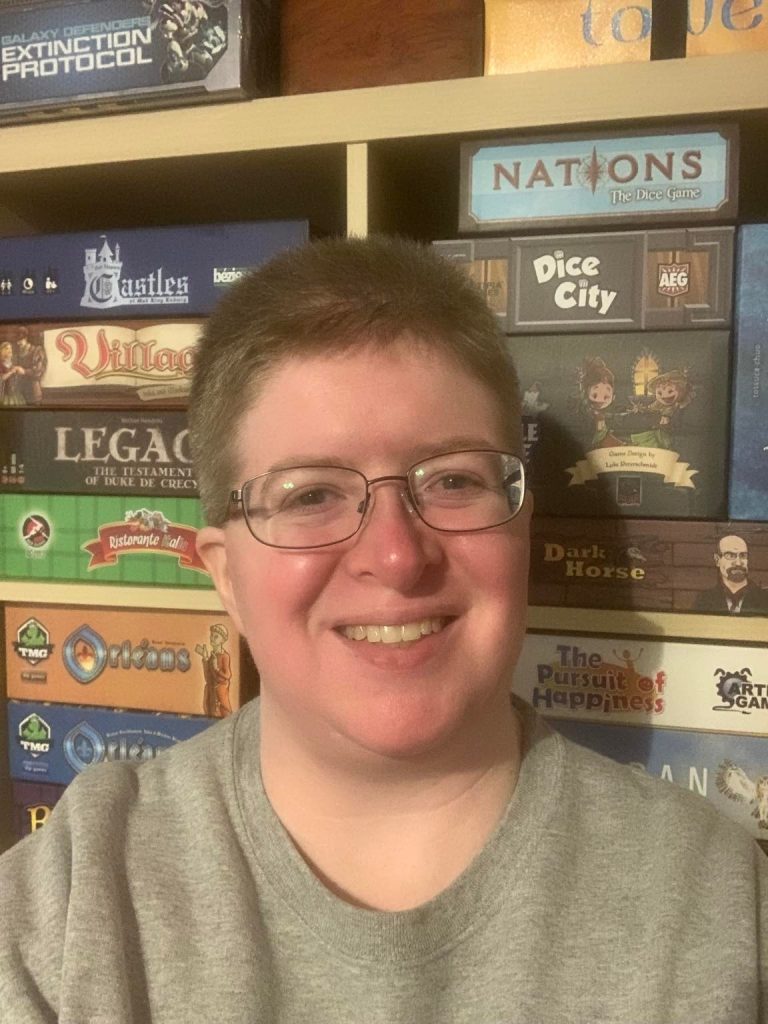
“Experience is most important to me, but it often comes after I’ve decided theme and mechanics. I typically work from a theme first as that motivates me the most to play games and it’s what motivates me the most to design games. But I have started some designs from components first, something cool or unique catches my eye and I think about how I can use it in a game.” – Sarah Reed, @EuroGamerGirl
Did you enjoy this entry? Which designers would you want to hear from next? Please let me know! I’d love to hear what you think and what kind of things you’d like to see from this blog. Feel free to send me an email or comment with your thoughts!
Don’t forget to sign up for my mailing list, so you don’t miss a post: https://tinyletter.com/carlakopp